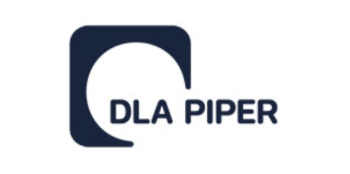On May 15 2017 the Joint Divisions of the Supreme Court issued a decision (119831/17) that further clarified the Court of Auditors' jurisdiction compared with that of the civil courts regarding the liability of directors and officers (D&Os) of companies held in whole or in part by public entities.
The matter is relevant for insurers that underwrite D&O-related risks and need to assess the insured's exposure and determine:
- whether the insured may be exposed to:
- civil liability and sued before the civil courts; or
- public liability and sued before the Court of Auditors; and
- the scope of coverage.
Procedural and substantive rules governing actions before the Court of Auditors and relevant liability are partially different from those governing actions before civil courts for breach of fiduciary duties or duties of skill and care.
In the first case, the quantum of damages may be reduced significantly by the court according to its discretionary power considering the behaviour of the defendant and the fact that the insurers cannot be added to the relevant action. In the second case, damages must be determined strictly by the application of the causal link between the wrongful action and the actual consequences thereof, with substantially no discretionary powers on the part of the court.
Following a long period of uncertainty, the law was amended to specify that D&Os of public stock companies are always subject to the jurisdiction of the civil courts, regardless of whether their capital is directly or indirectly in the hands of public entities (Decree-Law 248/1997 and Law 31/2008).
Further, the Joint Divisions of the Supreme Court contributed to the debate through various decisions (eg, Decisions 20941/2011, 10299/2013 and 21692/2016) which held that the damages caused by D&Os of publicly held companies are generally to be assessed by the civil courts under the standard rules governing the liabilities of private limited liability companies' D&Os, while the jurisdiction of the Court of Auditors should be residual. For instance, the Court of Auditors' jurisdiction still exists where the D&Os of publicly held companies have caused reputational damages against the state or failed to exercise the powers directly attributed to them by the public shareholder.
The Court of Auditors' jurisdiction has been affirmed regarding the D&Os of certain in-house companies – that is, companies established under the standard rules of company law:
- whose shareholders are public entities only;
- whose corporate purpose is the provision of services, on a prevailing basis, to the public shareholders themselves; and
- which are subject to supervision and controls similar to those to which public entities are subject (see Decisions 26283/2013, 5491/2914, 7177/2014 and 26643/2016).
In apparent contrast with the rulings rendered so far with reference to in-house companies, the Joint Divisions of the Supreme Court ruled that D&Os of railway companies established in the form of limited liability companies held in whole or in part by public entities are subject to the jurisdiction of the civil courts on the grounds that:
- the railway sector has been liberalised at EU level and members states must ensure competition and full access to the market to those wishing to pursue such business; therefore, any deviation from corporate rules is prohibited; and
- the business model elaborated at EU level regarding railway services prohibits the relevant companies from being considered in-house companies. In contrast, it requires that companies active in the provision of railway services be treated as any other limited liability company, including with regard to their D&Os' liability.
For further information on this topic please contact David Maria Marino at DLA Piper Italy by telephone (+39 02 80 61 81) or email ([email protected]). The DLA Piper website can be accessed at www.dlapiper.com.
This article was first published by the International Law Office, a premium online legal update service for major companies and law firms worldwide. Register for a free subscription



